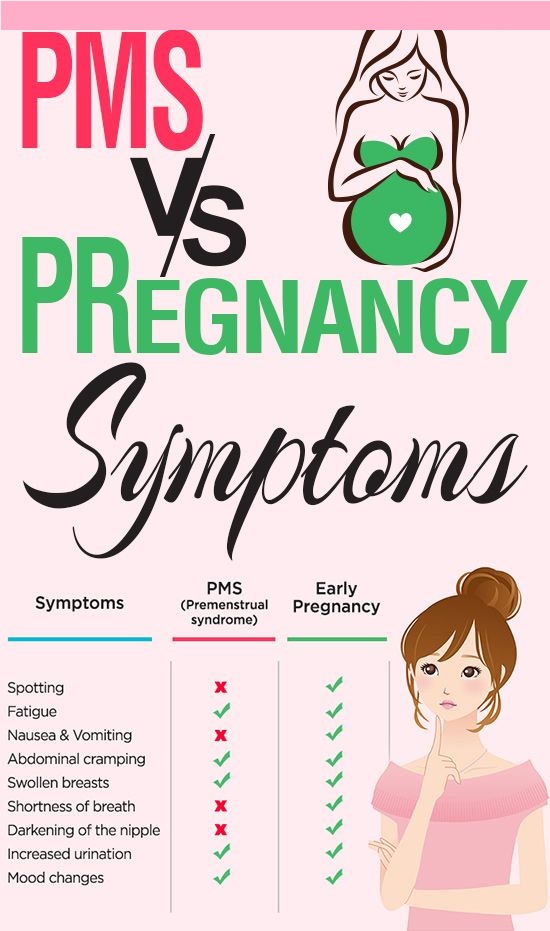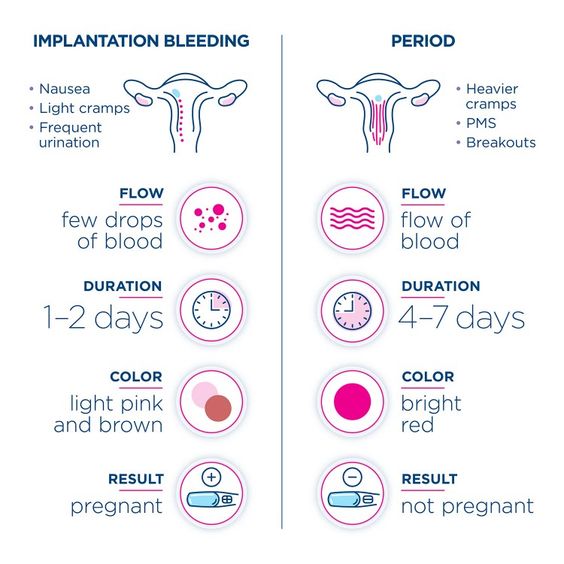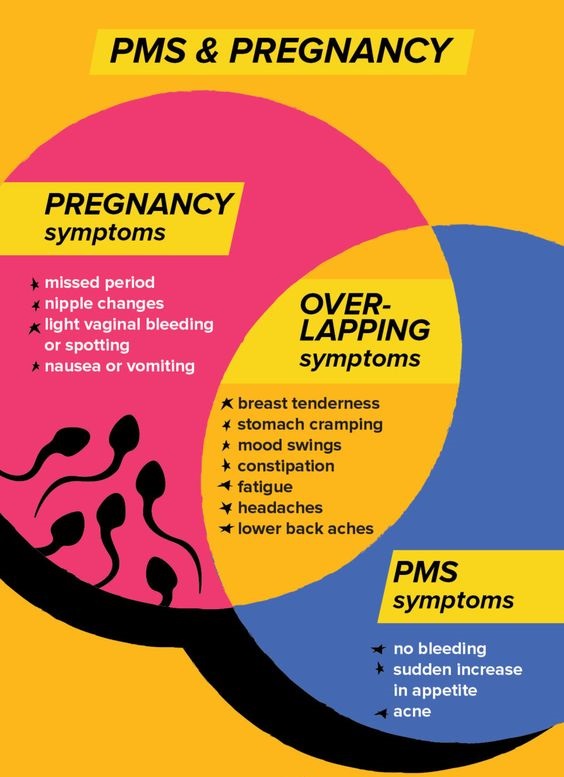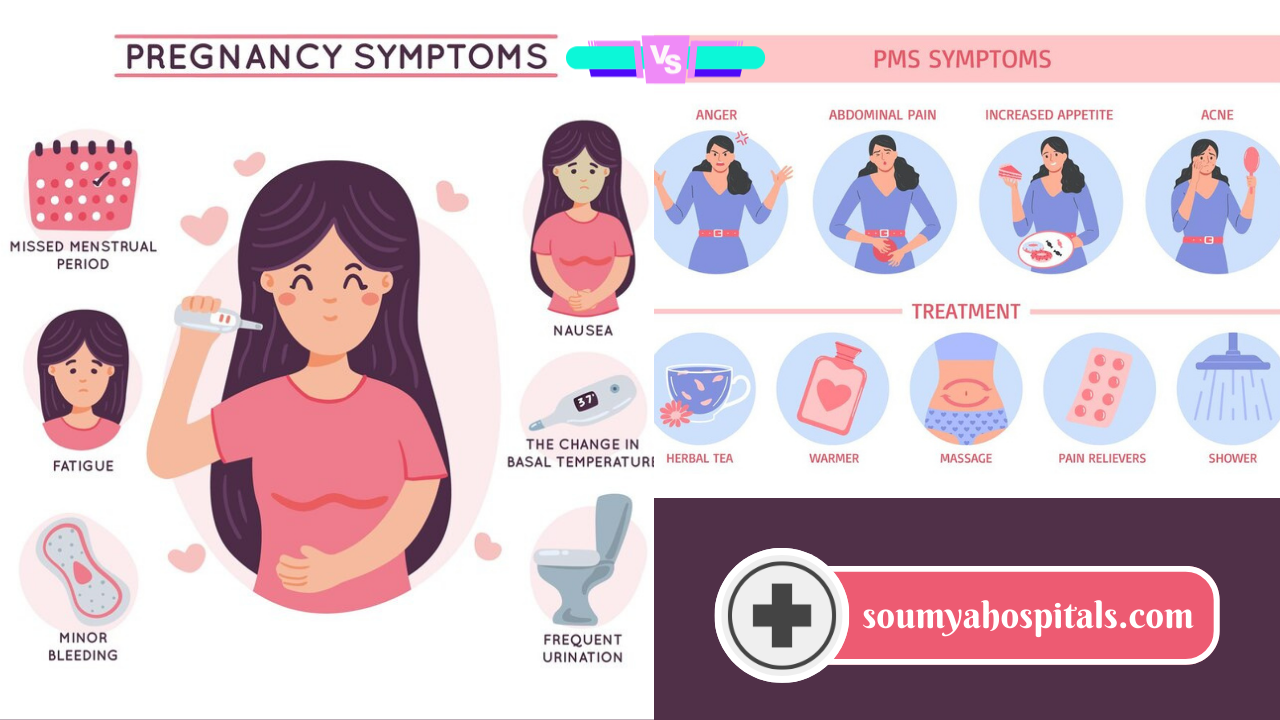Have you ever mistaken PMS for pregnancy? Whether you’re hoping for PMS or pregnancy, it’s not uncommon to confuse one with the other. PMS and pregnancy have similar symptoms and not knowing the distinction can have consequences. While PMS symptoms usually last only till your period starts, pregnancy symptoms may last longer, sometimes even until the end of pregnancy. However, it is always better to take a pregnancy test if the signs are unclear.
Since PMS and pregnancy need to be treated differently, it’s important that you know how to differentiate one from the other.
Also Read: 8 Home Remedies For Tackling Indigestion During Pregnancy
1. Spotting Or Bleeding
If you are pregnant, you will have light spotting or bleeding that won’t last as long as your periods. It is easy to confuse it with normal periods but the difference is in how long it lasts. Pregnancy-related bleeding may last only for a few hours or up to 2 days. The blood is dark brown or pink in color when the embryo attaches to the uterus. This is known as implantation bleeding and is one of the early signs of pregnancy.
During PMS, there is usually no spotting or bleeding. However, once you have your periods, there is normal blood flow. Unlike implantation bleeding, the blood during your period is bright red.
2. Nausea
You are more likely to experience nausea if you are pregnant. Although it is called morning sickness, it can occur at any time of the day and may or may not be accompanied by vomiting. So, if your periods are late and you experience nausea and vomiting, it may be a sign of pregnancy.
On the other hand, nausea is not a symptom of PMS. You will not experience it even if your period is late. So, there can’t be any confusion here.

3. Fatigue
Fatigue is common in the early stages of pregnancy and sometimes lasts throughout the pregnancy. During pregnancy, the progesterone levels in your body will rise to promote the growth of milk-producing glands in your breasts. This makes you tired and sleepy.
Although fatigue is normal during PMS, you may also have trouble sleeping. Fortunately, these symptoms will go away once your period starts.
4. Cramping
During implantation, you may experience cramps along with the spotting or bleeding. You may feel mild pain in the lower abdomen or lower back, which can last for several weeks or months.
Not everyone suffers from cramping during PMS. However, some experience severe pain and cramping in the lower abdomen during PMS and menstruation. When your period starts, the pain reduces and slowly goes away as the bleeding stops at the end of the cycle.
5. Mood Swings
If you are pregnant, you may experience mood swings, irritability, anxiety, and depression. These changes in mood are caused due to the hormonal changes and may last until the end of pregnancy.
During PMS, you may experience crying spells, mood swings, hostile behavior, anxiety, and sadness. These symptoms will usually go away once your period starts.

6. Breast Pain
Breast pain, swelling, and breast tenderness are common symptoms of pregnancy. Due to the increased testosterone levels, you may experience breast pain that can last for several weeks. If you are pregnant, you will notice this change 1 to 2 weeks after conception, and the breasts may also feel heavier.
During PMS, you may experience breast pain and tenderness but the pain doesn’t last long. The pain will likely reduce or go away right before your period as the testosterone levels in your body reduce during this time.
7. Food Craving
If you are pregnant, you may crave for specific foods. You may also dislike eating foods that you always liked. These intense foods cravings and aversions may change throughout the pregnancy.
Food cravings and changes in food habits are also seen during PMS. However, during PMS, you may crave sweets, carbohydrates, or salty foods. Sometimes, you may also experience an increase in appetite.

Note: If the pregnancy test gives a negative result, consult your doctor to rule out any other health problems.
Read More:
